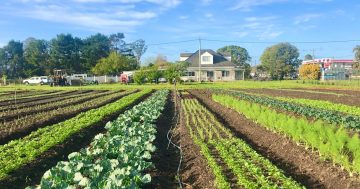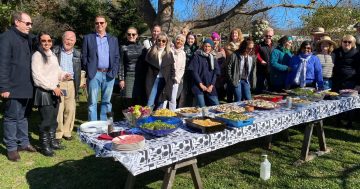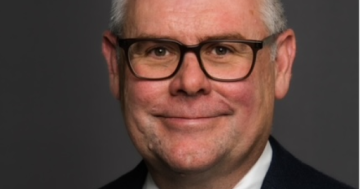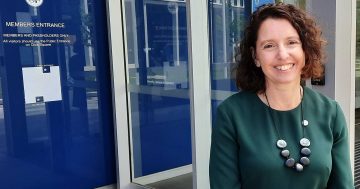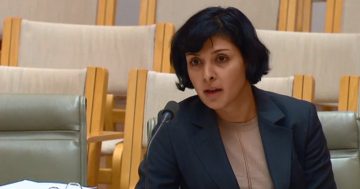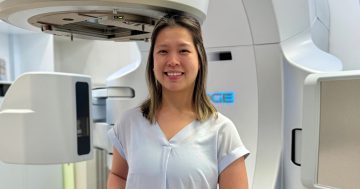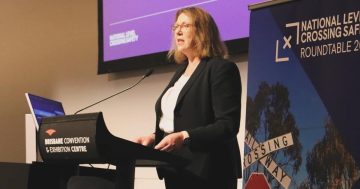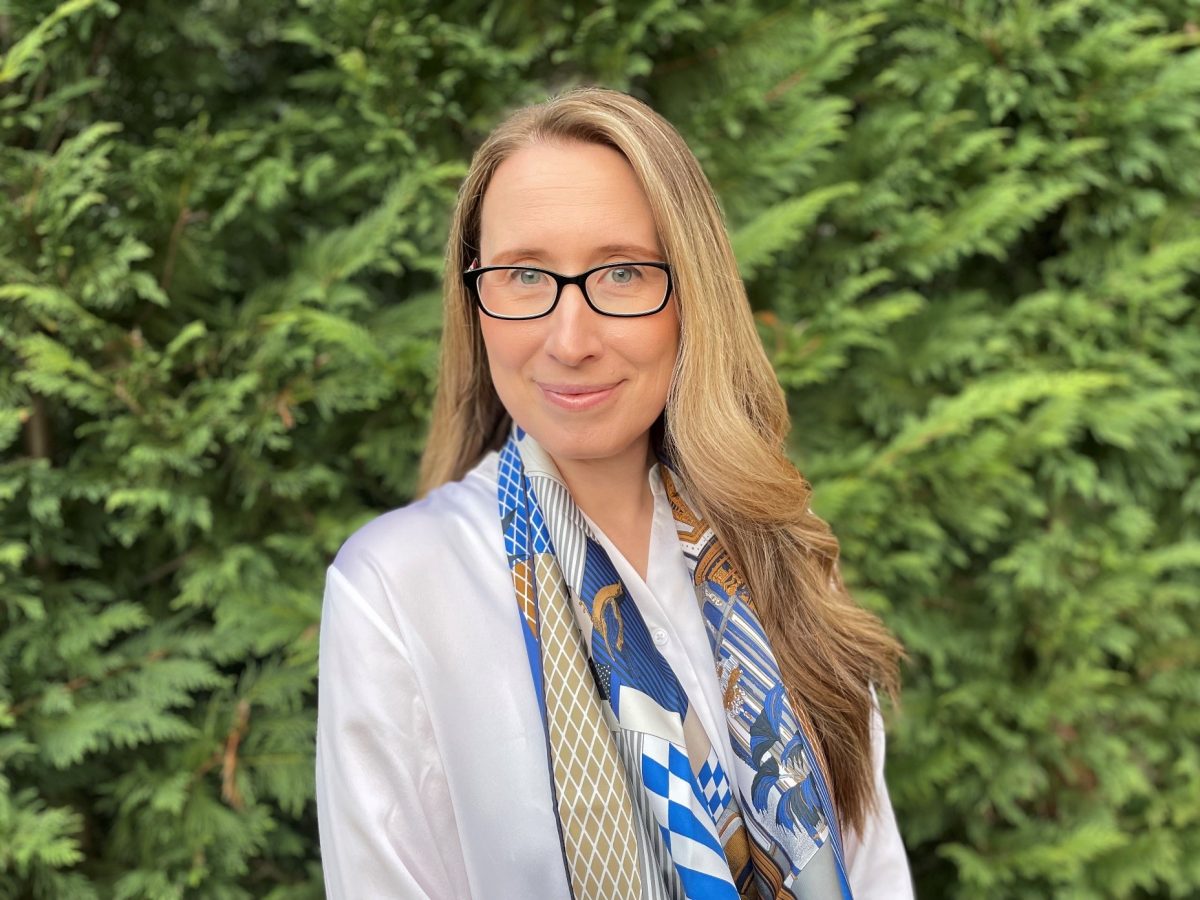
Dr Sandra Cuthbert – a vet who has become an APS rising star. Photo: FSANZ.
Sandra Cuthbert is not afraid of changing gears and heading off in new directions.
This, combined with a willingness to crack tough project nuts, has served her well in her newly appointed role as boss of the food safety regulator Food Standards Australia New Zealand (FSANZ).
When Dr Cuthbert uprooted herself from Ontario in Canada to pursue a veterinary medicine degree in Australia she could hardly have imagined that a couple of decades later she would be heading up a major public sector agency in Canberra.
She met her partner at university in Perth and in 2006, moved to the national capital and joined a veterinary practice. There she became involved in the certification of animals for export, mainly cats and dogs moving overseas with their owners.
That led her to become accredited with the Australian Government as an export vet and sparked an interest in the public service.
Dr Cuthbert joined the Department of Agriculture working on the import of animals, expanding to managing various biosecurity risks.
The legal aspects of the role prompted her return to study, this time Juris Doctor in Law at the University of Canberra where she won the JDLaw Dean’s excellence award.
“Because I was responsible for making significant decisions on products entering the country I wanted to ensure that I was exercising my responsibilities appropriately and help recraft the regulations and legislation that underpins products that come into the country,” Dr Cuthbert says.
It helped that she liked studying but she also took on board feedback that it would be good to use that extra study to try to branch out into something different.
That’s how a vet ended up in finance, a smoother transition than she expected, highlighting how transferable skills can be and reinforcing the benefits of positive change.
Dr Cuthbert says rising public servants should not shy away from tackling something new but keep learning and growing.
“I think that’s really the bottom line,” she says.
“Everyone should get to know themselves first, understand what matters to them and their values, and make sure that they align career decisions with who they want to be, who they are, and what they stand for. But definitely don’t hold yourself back because you’re scared of something – it’s great to give something a try.
“It’s so exciting to then give it a go and realise it’s not as scary as you originally thought.”
In 2019 Dr Cuthbert joined the APS SES leadership group. Her biography says she has earned a reputation for delivering outcomes on complex and time critical projects.
“I do love a challenge,” she says.
One of the most enjoyable and rewarding ones came at the beginning of the global pandemic – fast-tracking the FSANZ website, which ended up becoming the central hub for COVID information for the food sector.
“We were able to bring together challenges that were cutting across the food sector and then all of the jurisdictions to create this one-stop website where people, businesses or consumers could go, with a really simplistic FAQ to answer challenges that people had,” she says.
That was her first stint at FSANZ before a brief period working in Commonwealth-State relations at PM&C in 2021. She returned to FSANZ as interim CEO later in the year and was confirmed in the role in March.
Dr Cuthbert must have made the most of her eight months acting in the top job – another lesson for anyone given such an opportunity.
“If ever you get an opportunity to step up and act in any role, pretend it’s your own,” she says.
“There’s not much point in seat warming from my perspective.”
Now firmly ensconced in the role, Dr Cuthbert’s present priority is preparing the agency for the outcomes of the FSANZ Act review, which may bring significant change.
To support that she is committed to automating, modernising and streamlining processes and enhancing engagement with stakeholders, potentially digitising the Australian and NZ food standards code.
The agency also wants to support industry to innovate in food production, manufacturing and service, particularly after the challenges it had to respond to during the pandemic.
“FSANZ has a really important role in ensuring that food continues to be safe,” Dr Cuthbert says.
“So we can play a role in this space by creating regulatory frameworks that support product entering the market while ensuring anything that’s created within that framework will be safe for consumers.”
Despite being a small agency of about 100 staff, FSANZ has a broad brief covering issues such as labelling, food additives, safety, diet and nutrition. It also has to manage the sometimes competing interests of various stakeholders, including consumers, public health advocates, industry and the states.
But Dr Cuthbert says that for the most part the different groups are all interested in the same thing – safe food.
“There are challenges and difficulties along the way,” she says. “But remaining independent and consulting very broadly to understand all of the issues so we can create those elegant solutions that will work to support consumers and ensure safe food is where the exciting opportunities of this job really come to light,” she says.
Dr Cuthbert says FSANZ’s role is to give consumers enough information to make informed choices about the products available on supermarket shelves.
She says the agency, which she calls a powerhouse for the amount of work it gets through, has in-house experts but also consults widely, commissions research and sources information from an array of databases, both in Australia and overseas to ensure food standards are sound.
“I’m really proud of that level of consultation that we undertake to ensure that FSANZ provides that independent, robust, scientific evidence base for any recommendation that we put forward as to how a new standard will ensure that food is safe,” she says.












